In life as in death, Field Marshal Sam Manekshaw was surrounded by those who were his true admirers, write Zenobia and Brig Behram Panthaki (Retd)
1932-34: Sam was a cadet at the Indian Military Academy. With him, in this first batch of Indians, was a young Tikka Khan. Both were boxers in the same weight category and during an annual match they were pitted against each other. The match was heading to a draw when Tikka lowered his guard to wipe his gloves. Sam delivered a stinging right hook that knocked Tikka down. By a strange quirk of fate, Sam delivered a second knockout punch to Tikka during the 1971 war that severed Pakistan in half and changed the geo-political map of South Asia forever! After the war my husband, a Captain at the time, accompanied him to Lahore for delineation talks. To lower the palpable tension, during the ride to Corps HQ, Sam broke the ice, ‘Tikka, you have no vices, you don’t smoke or drink, why do you hide behind dark glasses? I should be wearing those!’
Sam’s brand of discipline and honesty was tempered with common sense while a unique sense of humour was his forte.
When he was Eastern Army Commander, a young officer, madly in love with a tribal girl, was indulging in an amorous dalliance with her, whilst unknown to him, outraged tribesmen had surrounded his hut and were baying for his life. Word of this standoff reached battalion headquarters and the commanding officer organized action to rescue the subaltern. Command HQ was alerted and although the situation was diffused, the matter got reported all the way up to Army HQ! A month later, when visiting the post Sam met the young lieutenant who thought he had it coming, but Sam’s only comment was, ‘Boy, you had my whole Eastern Army at ‘stand to’, I hope she was worth it!’
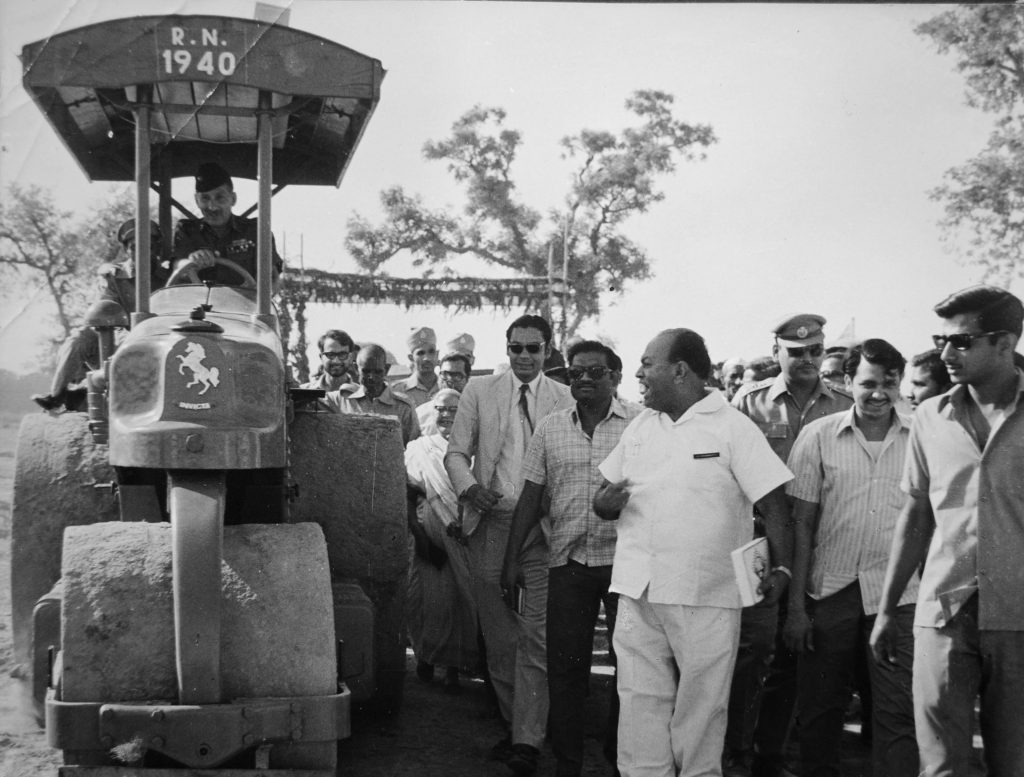
The Army Chief in the driver’s seat
Sam had a way with words and his sense of humour could diffuse tense situations. The then Prime Minister, Mrs Indira Gandhi, asked him to come to her office immediately. It was 4 pm and Sam said he would be there as soon as he’d had downed his cuppa tea! She jokingly asked if he thought the PMO had no tea to offer, to which he replied without hesitation that the ‘chai’ his Gurkhas made was far superior to the PMO’s ‘chai’! But, of course, he went immediately to find a very disturbed PM. She soon revealed the cause of her discomfort was he. Members of her cabinet had been cautioning her that his popularity in the armed forces and on Main Street made him a likely candidate to pull the rug from under her feet by launching a coup. That’s when he stretched across the table and told her that although his nose was longer than hers, he’d keep it out of her business as long as she gave him her word that she would keep hers out of his. Mrs Gandhi was reassured. After that he commanded his army without let or hindrance. He was able to plan and execute the 1971 Op without hindrance and make it a resounding success. While he had excellent rapport with the PM, he was always correct and addressed her as ‘Madam PM’, never as ‘sweetie’. He did pay her compliments, like the time when she returned home after attending Charles de Gaulle’s funeral in Paris. He was at Palam Airport to receive her along with her Cabinet when he leaned close and complimented her ‘chic’ haircut. She broke into a smile and whispered back that he was the only man that had noticed! This closeness to the PM had some politicians very uneasy, especially Defence Minister, Babu Jagjivan Ram who, with some justification, felt by-passed, especially during the build-up to the War.
The build-up to the war began in 1970 with the refusal of West Pakistan and Bhutto’s PPP to acknowledge the victory of the Awami League in the federal elections. How could a Bengali, Sheikh Mujibur Rehman, govern Pakistan? Culture and ethnicity trumped religion and the country was in turmoil. In March 1971, West Pakistan launched Operation Searchlight and rounded up thousands of intellectuals and dissidents in E. Pakistan and butchered them mercilessly. This genocide resulted in waves of refugees pouring into our border states and creating an economic, financial and logistical crisis that was non-sustainable. By April the situation had spiralled out of control. At a cabinet meeting the Army Chief was pressured to mount an offensive against Pakistan immediately. Sam rejected this knee-jerk reaction. He needed time to mobilise his formations and make up for shortages of equipment. Communication links by road and rail needed to be established for sustained logistic support. The weather had to be conducive. In the monsoons all of Bengal but especially the delta region becomes a swamp in which his tanks would get bogged down and with poor visibility and air support would be hampered. He needed nine months of preparation by which time winter would set in and the snows would block the mountain passes, rendering any attempt by China to open up a second front futile. Sam was ready to tender in his resignation rather than be bulldozed into a misadventure. He got the PM’s agreement and the rest is history.
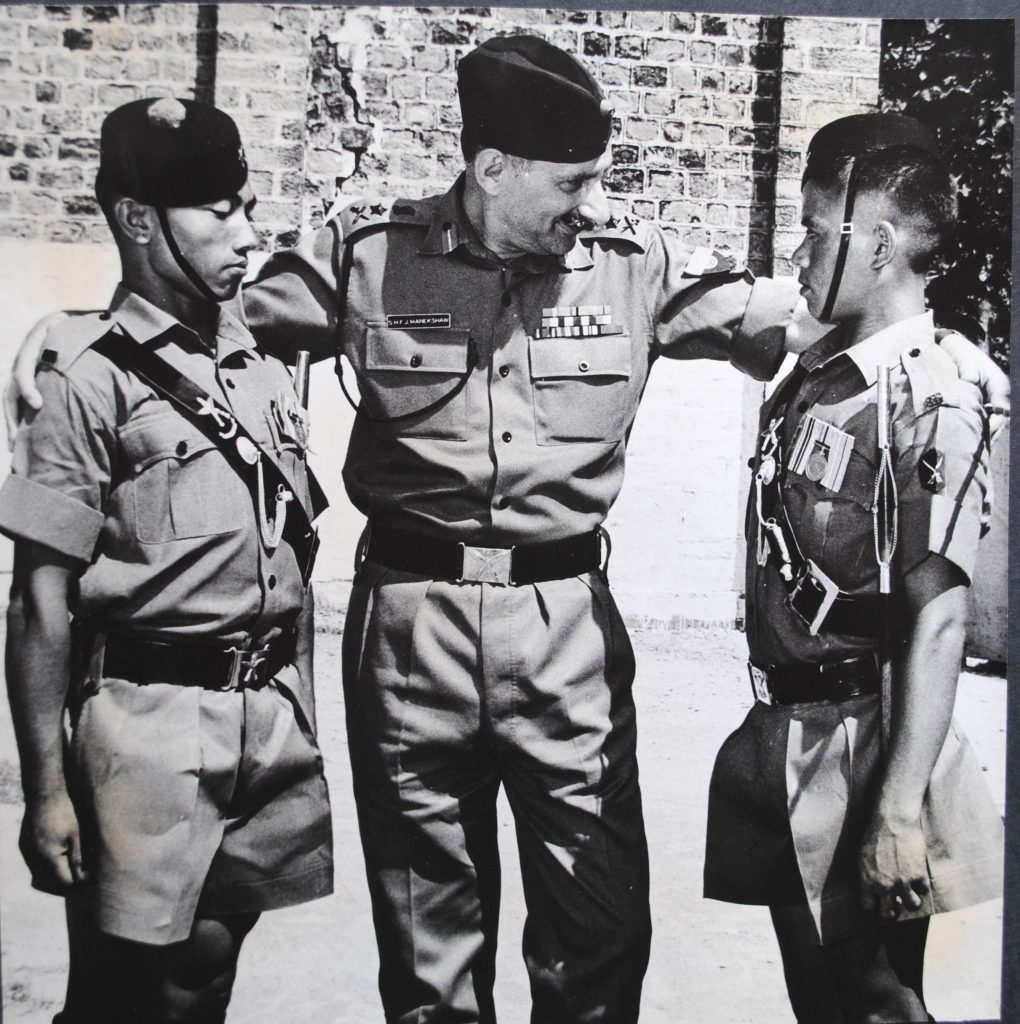
Before the war, Sam visited forward locations to check plans and preparedness. In his ‘pep talk’ to the men he clearly spelt out his expectations: “When you enter Pakistan, you might find attractive women, but remember those who wait for you at home are a class apart!” Masked behind his humour was a warning: “There will be no looting, I am commanding soldiers, not thieves.” After the war, when RAW revealed the names of a few officers who had contravened his instructions, the sword fell swiftly but silently. Inspite of their military successes, those officers were given their marching orders. Meanwhile, the 93,000 POWs we had taken captive were treated according to the Geneva Convention and foreign media was given full access to our camps.
While Sam celebrated this decisive victory, his primary concern was for the wounded and disabled and for war widows. Along with his wife, Silloo, he reached out to the private sector for donations and together they raised Rs 7.5 crore in cash and kind. Sam said: “Silloo and I go around with a begging bowl so that my soldiers and their widows will never need to.”
Five minutes to change your mind!
Sam’s most endearing quality was his unique sense of humour. At our wedding, just five minutes before the ceremony, he turned to me and said: “Are you sure you want to marry this fellow – you have five minutes to change your mind!”
After we were married, we lived in the ADC’s cottage behind Army House. One Sunday, he invited himself to breakfast and wanted to eat a Parsi ‘poro’ (omelette). For a novice like me, that turned out to be a tall order for the oil spluttered and each omelette fragmented into pieces. Sam quietly ate the portions I was able to salvage but while leaving he took Behram aside and joked, ‘send her back to her mother’s, she can’t even make an omelette!’ However, I was able to salvage my reputation some years later! In 1977, when Behram was a student at the Staff College, his ‘syndicate’ (group) was asked to research the 1971 war. He went off to Stavka (the Field Marshal’s house) with a recorder to get the entire scoop. Sam balked because he hated mikes, ‘go put this damn thing away and bring your wife instead!’ I took copious notes and was able to put together a comprehensive document that passed muster.
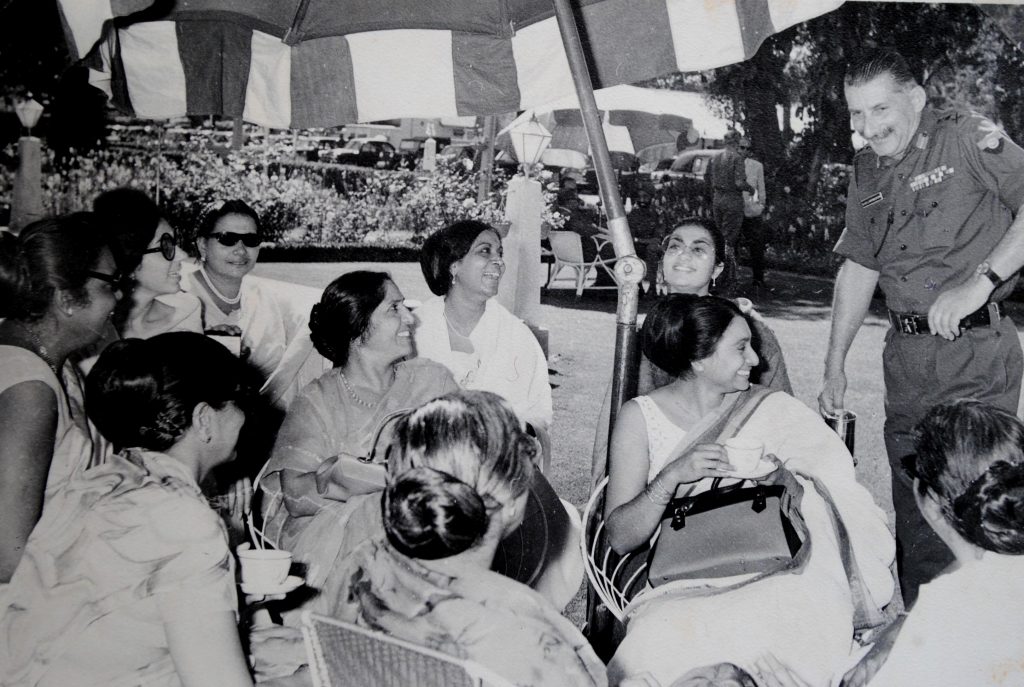
In 1977, Behram was attending Staff College in Wellington and we’d been allotted a house, a stone’s throw from his home, Stavka. Soon after the course began we hosted a ‘bottle-and-dish’ party and invited all student officers and their wives who liked to dance, to join us on a Saturday evening. When Sam found out, he was upset that he wasn’t on our guest list! We promptly corrected this lapse and Sam made a grand entry when the party was in full swing along with a young lady – Mrs Manekshaw was in London. The next day, he had the rumour mills in the College churning, but in actual fact the young lady had just come by an inheritance and he was guiding her with legal and financial advice. She was so overwhelmed that he thought this would be an ideal break for her!
When we were newly-weds living in the ADCs’ cottage, I used to work for IBM. One day, after a particularly gruelling day, I came home at midnight. My colleague, a naval officer’s son, suggested I go late the following day and offered to give me a ride; an offer I gladly accepted. The next morning a white naval staff car drove through the front gate of Army House and stopped at our cottage. Sam, who was in his shorts, tending the garden with the mali, turned and stared. Not realising what this meant, I waved to him as I stepped into the vehicle. The penny only dropped when Behram told me that while going to work that day the old man said to him: “I thought Zenobia worked for IBM. You didn’t tell me that she now works for Naval HQ!” I had been told off for sure, a lesson I never forgot although that was really not my doing!
Playing a supportive, but low-key role, was his wife, Silloo. He often said that she was his ardent fan and his greatest critic. Soon after he became Chief, one day, she was a bit under the weather and drove herself in her private car to the Armed Forces Clinic on Dalhousie Road, took a token and sat on the bench with the other women, awaiting her turn. When the Nursing Orderly called her number she walked over and said she was the wife of Gen Manekshaw, IC 14’. The man jumped out of his Chair and fetched the Commandant who insisted she should have called him. He would have made a house visit. She, equally calmly, insisted she did not need to be fussed over!
It is a sad commentary that after the historic victory of 1971, the government was slow to reward the architect of that masterstroke. Mrs Gandhi wanted to make Sam a Field Marshal but for months, her plans were thwarted by some of her senior Ministers and an entrenched bureaucracy. Wrangling over each item went on for months until one day he slammed the phone on the Defence Secretary and said he would not discuss this any further! He wanted nothing! The outcome was that on December 31 at around 4 pm he was informed that on the 9 pm news bulletin, the government planned to announce his promotion to the rank of Field Marshal.
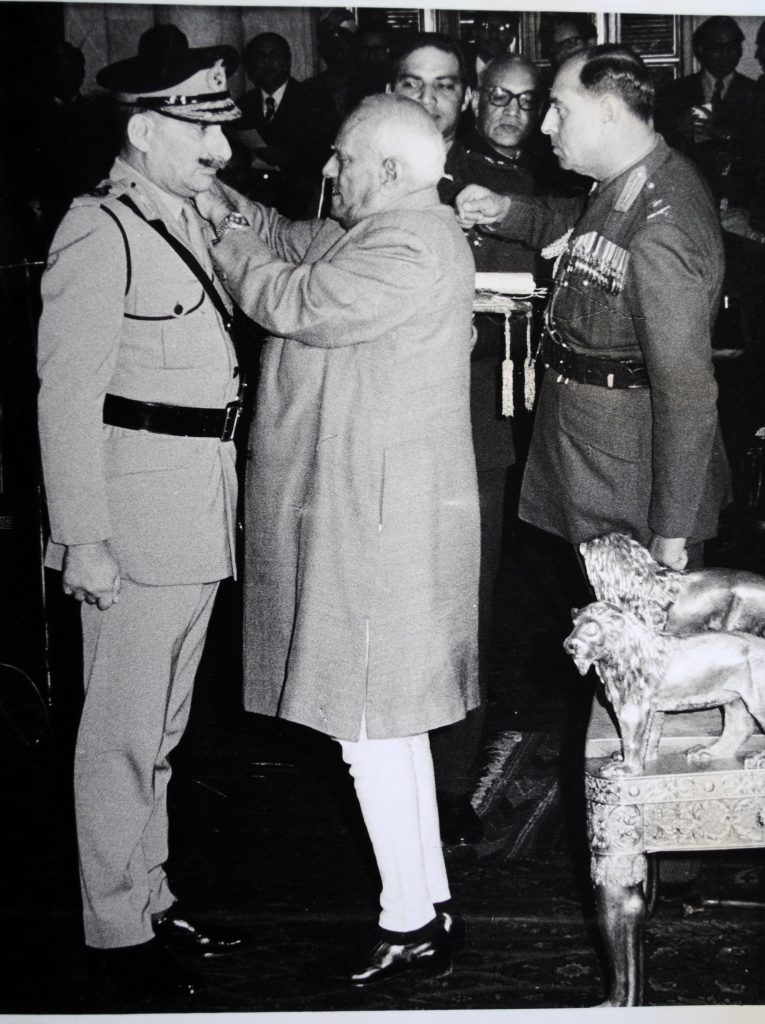
Silloo called us at the cottage to convey the good news and we rushed over and helped them set up Army House for the tide of officers who were bound to drop by to congratulate him. At 9 pm we sat down in Sam’s bedroom with our drinks, listened to the announcement on Doordarshan and raised a toast. Jubilant officers began arriving soon after and the tide did not abate. At around 10 pm Sam turned to Behram and said, ‘Off you go to the DSOI before Zenobia blames me for spoiling her New Year’s Eve!’ He would have none of our remonstrations, so we left. The mood at the Club was jubilant. At 11.30 Sam arrived with Silloo to thunderous applause. He was on the dance floor, celebrating and sharing this recognition with his officers.
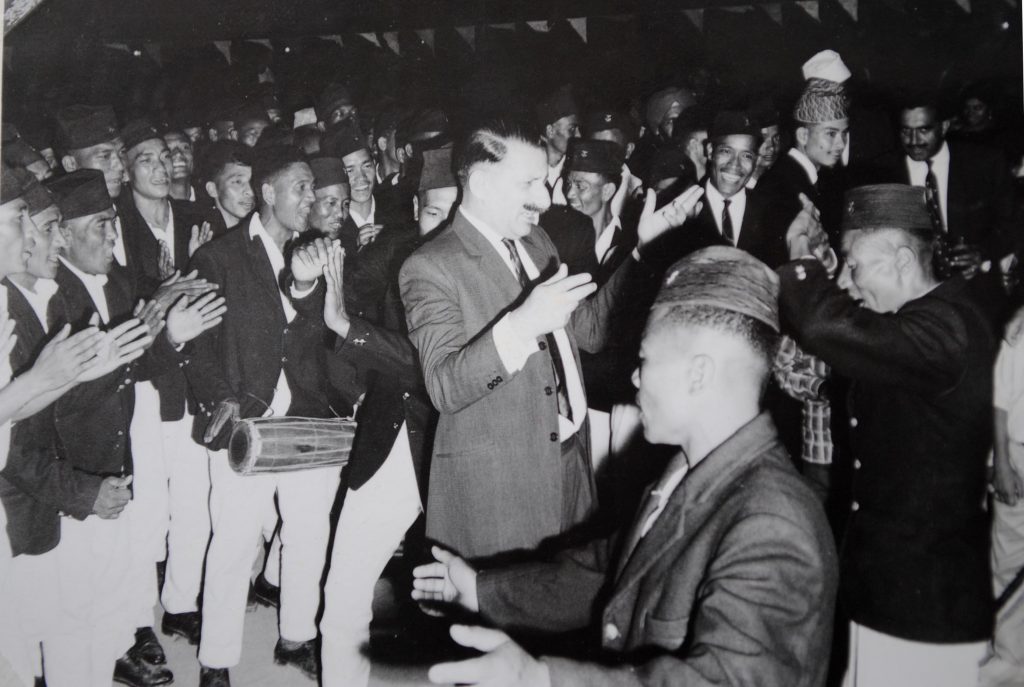
With all the post-war issues settled, Sam told Mrs Gandhi it was time for him to hang up his boots. He wished to hand over the reins to his successor, Gen GG Bewoor, on January 15, Army Day. After the parade in Delhi Cantonment, where for the first time since Independence, the salute was taken by an Indian Field Marshal, Sam drove to Army HQ for the formal handing/taking over ceremony, inspected a Guard of Honour and drove to the MES Inspection Bungalow in Delhi Cantt. That’s where he stayed there for about a month as finishing touches were still being put on Stavka. When Silloo said the house was ready, he boarded an Indian Airlines flight and left Delhi without fanfare.
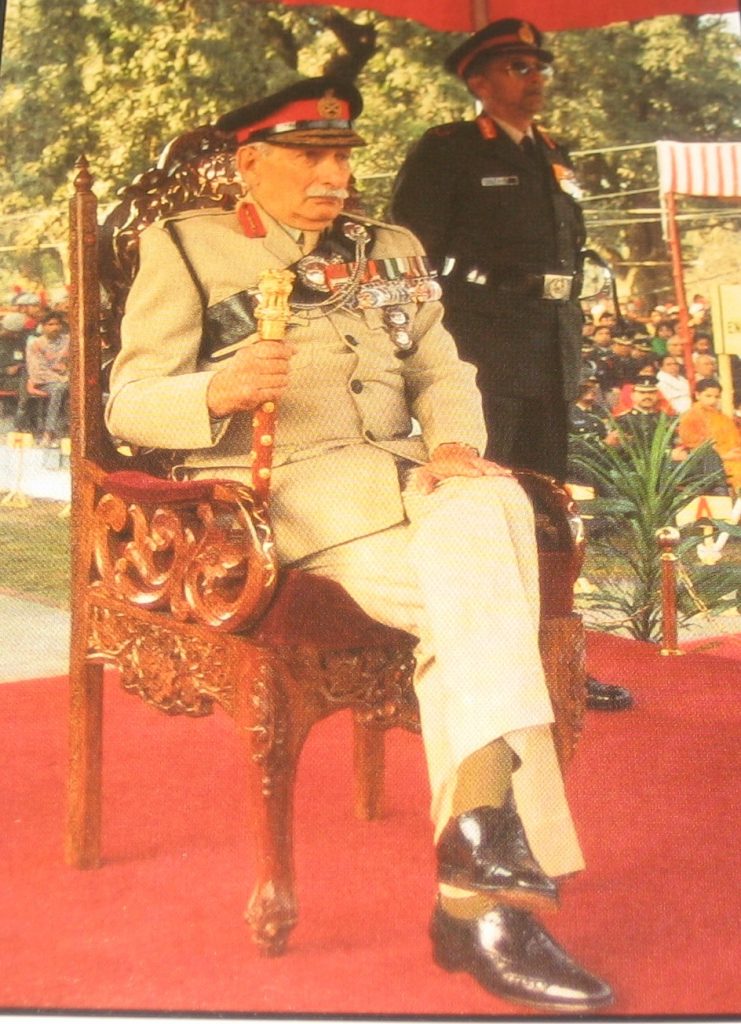
The bureaucrats had pegged his salary a few hundred more than the pay of an Army Chief. For the next 35 years, it remained static without even DA increases as, very conveniently, the ministry had forgotten to add the rank of Field Marshal to the grade structure. He was given no office, no staff, no guards although a Field Marshal is a serving officer. It was only in 2007, shortly before he died, at the instance of President Abdul Kalam, that the government paid him ‘past salary’ with a cost of living adjustment. At that stage of his life, when his wife was no more and he was confined to the hospital, the government offered him staff and guards. He turned down the latter saying his life was in no danger, maybe the guards could be assigned to politicians instead! To add insult to injury, when he passed, there was no representation from the government at his funeral. Senior Officers, posted at the Staff College in Wellington, were asked to represent the Army Chief. The masses that came to pay their last respects more than compensated this for this lapse. In life as in death, he was surrounded by those who were his true admirers.
Till a day before he died, Sam had not lost his sense of humour. The room was full of specialists, consulting on his condition and treatment when he turned to his daughter and asked, ‘have the blighters left’. She replied they were near the door, discussing next steps. ‘I’m sure they are waiting for me to leave first’ he said, referring to army protocol where the senior-most officer leaves first! No, Sam, you got that wrong, actually none of us wanted you to leave at all!
The writers have published the book ‘Field Marshal Sam Manekshaw: The Man and His Times’. All the royalty earned from the book goes to The War Wounded and War Widows Associations of India — charities run by wounded officers and widows. The money reaches the intended beneficiaries and any books bought will contribute to these deserving causes. The War Wounded Association is chaired by Gen Vijay Oberoi who lost his foot during the 1965 Operation and by Gen Ian Cardozo who famously cut off his own leg with his khukhri when it got mangled when he stepped on a mine. The War Widows’ Association is run by Damyanti Tambay whose husband has been ‘missing in action’ since 1971 as is believed to be captive in a Pakistani jail.



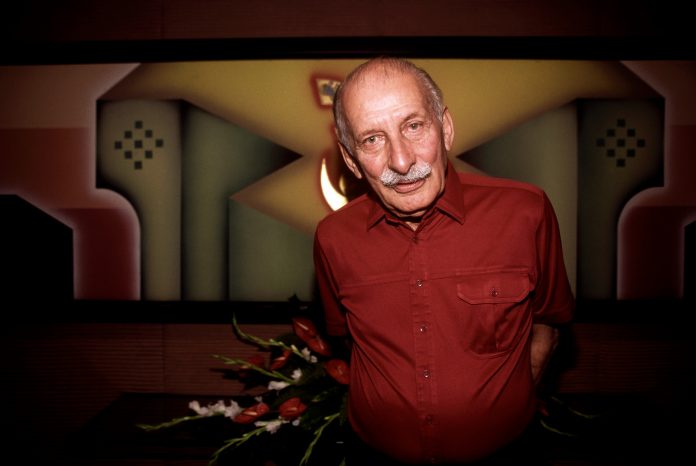
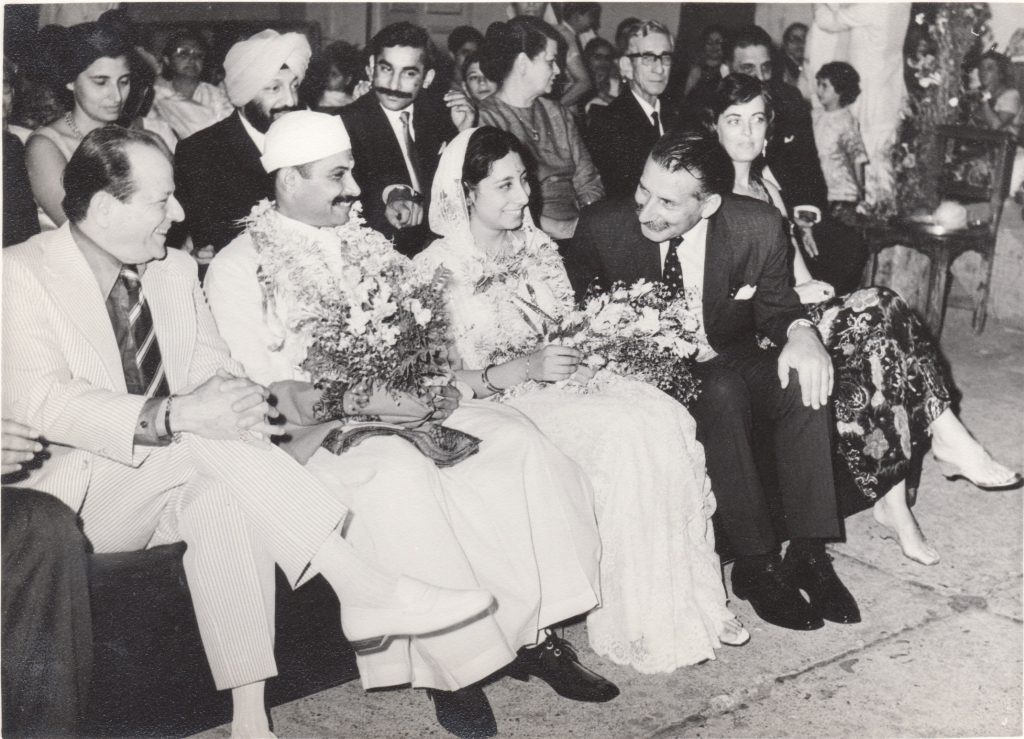
For 35 years, when Field Marshal Manekshaw was unjustly denied his rightful dues, what were successive Army Chiefs & entire Senior Command at Army Headquarters doing ? Is this the loyalty shown by Army officers to their topmost uniformed Commander ??
Comments are closed.